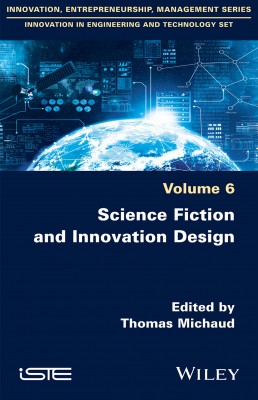
Science fiction is often presented as a source of utopia, or even of prophecies, used in capitalism to promote social, political and technoscientific innovations.
Science Fiction and Innovation Design assesses the validity of this approach by exploring the impact this imaginary world has on the creativity of engineers and researchers. Companies seek to anticipate and predict the future through approaches such as design fiction: mobilizing representations of science fiction to create prototypes and develop scenarios relevant to organizational strategy. The conquest of Mars or the weapons of the future are examples developed by authors to demonstrate how design innovation involves continuous dialogue between multiple players, from the scientist to the manager, through to the designers and the science fiction writers.
1. Technological Innovations in the Post-Apocalyptic World: Lessons Learned from Science Fiction Movies, Nadine Boudou.
2. Using Science Fiction in Engineering Education: Technological Imagination as an Element of Technical Culture, Marianne Chouteau end Céline Nguyen.
3. Engineers Versus Designers: Transposition of the Technical Imaginary World into the Visual, Florin Alexa-Morcov.
4. Imaginary Worlds to Be Projected or to Be Criticized? Methodological Considerations, Nicolas Minvielle, Remy Hemez and Olivier Wathelet.
5. Marsism, from Science Fiction to Ideology, Thomas Michaud.
6. Quo Vadis Engineering? Science Fiction as a Means to Expand the Epistemic Boundaries of Technoscientific Innovation, Marie-Luc Arpin, Corinne Gendron, Nicolas Merveille and Jean-Pierre Revéret.
7. Design Fiction, Technotypes and Innovation, Thomas Michaud.
8. Science Fiction, Innovation and Organization: Where Do We Stand?, Sonia Adam-Ledunois, Claire Auplat and Sébastien Damart.
Thomas Michaud holds a PhD in Management Science and an MBA. He is the author of Innovation, Between Science and Science Fiction (ISTE-Wiley, 2017) and studies the impact of the imagination on creativity and foresight.